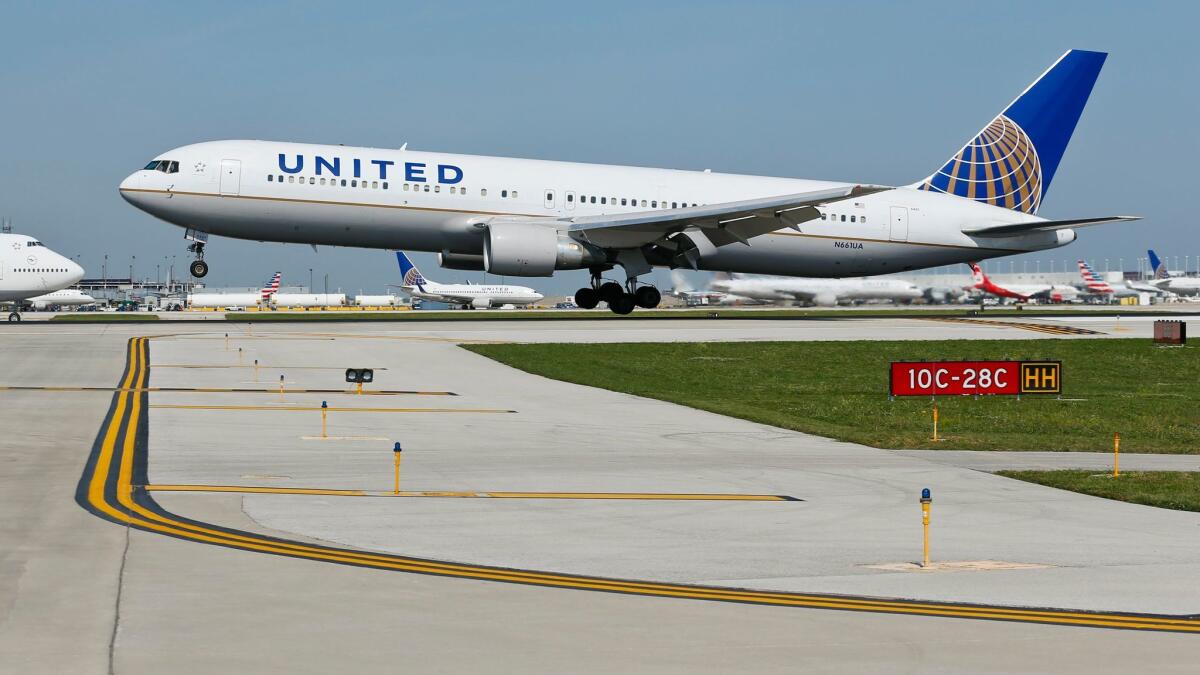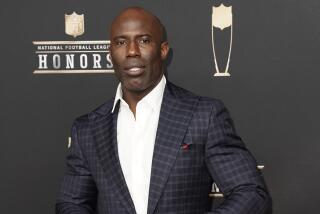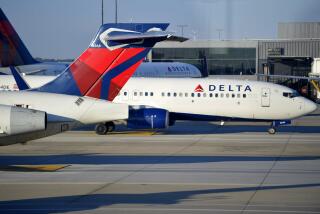A flight attendant’s take on the United mess: ‘Three decades of airline insanity had not prepared me.’

In my 32 years as a flight attendant, I’ve seen my share of outrageous incidents on and off the airplane: passengers spitting on airline personnel, a business flier sucker-punching a uniformed pilot, a female flight attendant throttling a woman who threw a dirty baby diaper in her face, a first officer stripping down to his boxer shorts at an airport security checkpoint.
But more than three decades of airline insanity had not prepared me for the video showing Dr. David Dao, the United Airlines passenger who was ripped from his seat and dragged off the aircraft bound for Lexington, Ky.
His attorneys have said their bloodied client sustained a concussion, a broken nose and the loss of two front teeth as a result of the encounter.
Dao’s “crime”? The 69-year-old ticketed passenger refused to give up his seat when United employees asked for the space for crew members and selected him for involuntarily removal.
Of the numerous ways United, the world’s third-largest carrier (by revenue), mishandled this, the main one was failing to stop this situation before it escalated into an incident that sparked international outrage. (I do not work for United.)
This may have been a case of denial of boarding, which is relatively rare, but overbooking is the scenario many fliers have encountered.
Before you travel, you might want to review those rules: www.lat.ms/overbookingrights. It’s also a good idea to review your airline’s contract of carriage, sometimes called terms and conditions, which you can find on its website.
Note that your rights involving a European Union nation or airline are different, and it’s worth it to review those rights depending on your carrier and/or destination: www.lat.ms/EUrights.
Overbooking reality
The quick answer to the question of whether overbooking is legal is this: U.S. airlines have the legal right to overbook flights.
Before a passenger can be involuntarily removed, or “bumped,” from a flight, the airline is required to ask volunteers to give up their confirmed reservations for seats on a later flight, according to Department of Transportation guidelines.
The DOT does not mandate how much or what form the payment should take. Often, the payment is in travel vouchers.
I’ve been at crowded departure gates on many such occasions, listening to the gate agent’s voice crackle over the public address system: “This flight is oversold. We’re offering $300 travel vouchers for five people willing to give up their seat.”
If no passengers step forward, the offer increases — $500, $1,000 — like bids at an auction, until the necessary number of volunteers has accepted the deal.
I remember one case in which a family of four gave up their seats in exchange for four $1,800 travel vouchers. That’s $7,200 worth of carefree jet-setting in exchange for taking a later flight.
If enough volunteers aren’t found, an airline can select passengers for involuntary removal.
Who gets selected? Often, those who paid the lowest fare or checked in late.
Fortunately, this rarely happens because volunteers will usually say yes if the offer is good enough.
That is where it all unraveled for United.
Passengers on Dao’s flight say the airline offered $800 to volunteers, although Oscar Muñoz, United’s chief executive, said the airline offered as much as $1,000. Either way, the lack of volunteers suggests it wasn’t enough.
If United had increased the payout, I’m betting at least one passenger would have volunteered to give up his seat.
Be aware that overbooking isn’t the only issue that can displace you. For example, if mechanical problems force an airline to replace a large plane with a smaller one, you may be left behind.
That happened on a recent flight from Miami to São Paulo, Brazil, that I worked.
Tense scenario
Before boarding occurred, our aircraft was switched from a Boeing 777-300 (eight first-class seats, 52 business, 250 coach) to a 777-200 (no first-class seats, 37 business; 252 coach).
Our replacement plane didn’t have a first-class cabin, so the gate agent told the eight first-class passengers they would be downgraded to business class.
That left 29 seats for 52 business passengers, so 23 biz-class passengers were booted to coach.
As the cascade continued, 23 main-cabin passengers — most of whom already had boarding passes — had to be bumped from the flight.
When faced with a downgraded aircraft scenario, displaced passengers have little recourse except to express outrage. And these passengers did. Vehemently.
The scene at the departure gate grew so ugly that gate agents summoned police, who threatened to jail the angry mob. Calm eventually prevailed.
But no one in that scenario suffered the fate that Dao did, and given the talk of litigation from that incident, it seems clear now that United will pay far more in legal fees, never mind harm to its reputation, than it would have by increasing the amount it was offering to passengers.
It’s a lesson for airlines that may change the compensation process, garnering results that do as little harm as possible to the customer, never mind an airline’s reputation.
Sometimes money talks even more loudly than an apology. But together, both can work wonders.
@latimestravel
More to Read
Sign up for The Wild
We’ll help you find the best places to hike, bike and run, as well as the perfect silent spots for meditation and yoga.
You may occasionally receive promotional content from the Los Angeles Times.






